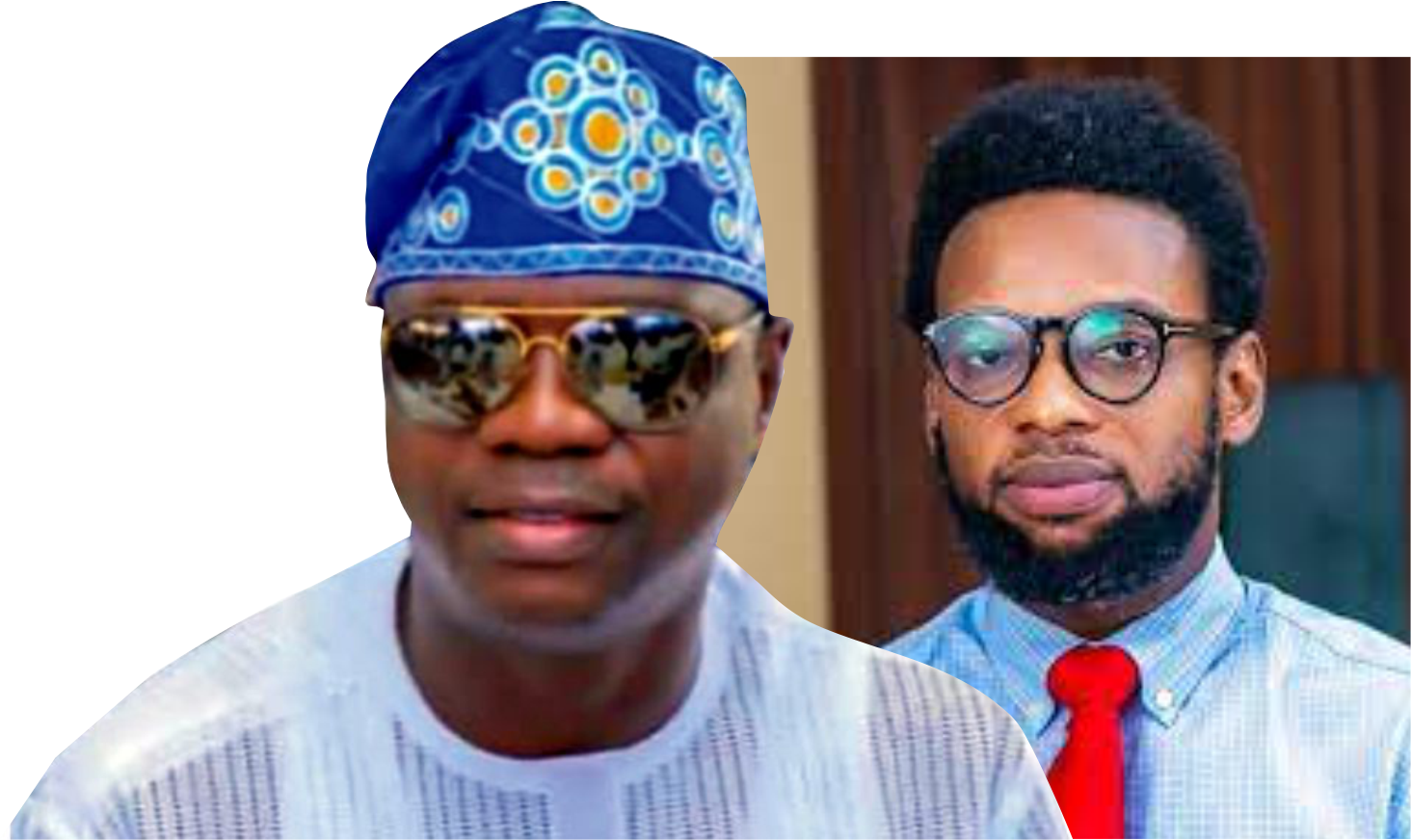News
AtotoDaily.ng Study: Fisayo Soyombo’s Undercover or Under Question? Inside the Allegations Against IBD Dende

The role of investigative journalism in a democratic society is sacred—meant to expose truth, hold power accountable, and uphold justice. But what happens when the ethics of the investigator are brought into question? This is the dilemma surrounding recent reports by Nigerian journalist Fisayo Soyombo and the businessman and community leader Chief Ibrahim Dende Egungbohun, popularly known as IBD Dende.
A study by AtotoDaily.ng, while not dismissing the broader usefulness of investigative journalism, has raised serious concerns about the credibility, accuracy, and methodology of Soyombo’s widely circulated reports titled “Undercover as Smuggler”.
The Allegations Against IBD Dende
In the two-part report published on the Foundation for Investigative Journalism (FIJ) platform, Soyombo alleged that IBD Dende was deeply involved in smuggling—of rice and even firearms—across Nigeria’s western borders. The claims were supported by his personal infiltration into smuggling operations and quotes from a self-confessed smuggler named “Jide.”
Chief Egungbohun, described in local and national circles as a legitimate businessman and licensed freight forwarder, has denied all allegations. He has also received public support from the Nigeria Customs Service, which, according to their official spokesperson, has never confirmed any smuggling offense against him.
Fact-Check: Discrepancies in Soyombo’s Reporting
A content analysis by AtotoDaily.ng identified five major concerns in Soyombo’s reports that question the robustness of his methods and conclusions:
1. Lifted Content Without Verification
One key allegation—gun running—was allegedly sourced from a 2018 article on SocietyNow.ng, a soft-sell media platform. A later update from the same outlet contradicted the earlier report, stating that no guns were found in the vehicles linked to Dende, and that his arrest was possibly orchestrated by detractors.
2. Fabricated or Inaccurate Descriptions
In narrating his smuggling route, Soyombo mentioned locations like “Ona-Egbo” and “Foursquare Bus Stop” with descriptions that locals say don’t match reality. Ona-Egbo, for example, is less than 2 km from Ilaro Polytechnic—not the 5 km stated in the report.
3. Contradictory Scenes and Events
Soyombo’s report claims that Customs officers were inactive and corrupt, yet also described Customs raids and smuggler relocations due to enforcement fears. These contradictions cast doubt on the consistency of his narrative.
4. Use of Unverified Multimedia
A video used in Soyombo’s article was edited with FIJ branding, but reports suggest he was not physically present at the event. The discrepancy between the video and Soyombo’s written interpretation of events has raised questions of media manipulation.
5. Absence of Core Evidence
Despite allegations of smuggling 2024 model vehicles and arms, Soyombo did not present receipts, Customs reports, eyewitness testimonies, or direct interviews with the accused. For such severe claims, the lack of verifiable evidence undermines journalistic credibility.
You may also like to Read: https://atotodaily.ng/using-the-good-office-to-villify-targets-the-half-truths-of-fisayo-soyombo/
The Jayson Blair Comparison
The AtotoDaily study likened Soyombo’s methods to infamous cases of media fraud in Western journalism—such as Jayson Blair of The New York Times, who fabricated numerous reports in the early 2000s, and Janet Cooke, who returned her Pulitzer Prize after inventing a character in a story. These comparisons are not meant as verdicts but as cautionary parallels that emphasize the need for diligence, balance, and accountability in reporting.
The Ethics of Investigative Journalism
Nigeria’s Code of Ethics for Journalists, particularly Article 2 (ii & iii), mandates accuracy, fairness, and the right of reply. Critics argue that Soyombo’s report failed to uphold these principles, as it did not include a comment from IBD Dende or the Nigeria Customs Service before publication.
While freedom of the press is protected, it is not above accountability. The absence of fact-checking, reliance on a single anonymous source, and omission of rebuttals could, if proven, set a dangerous precedent for journalism in Nigeria.
Public Reaction and Regulatory Gaps
The controversy has reignited debates around media regulation in Nigeria. Advocates call for strengthening the Nigerian Press Council (NPC) to prevent unprofessional journalism from influencing public opinion without due responsibility. However, others warn against turning this into a political weapon against press freedom.
Who Is IBD Dende?
Chief Ibrahim Dende Egungbohun, born in Ogun State, is a licensed clearing and forwarding agent and the founder of IBD Impex Ltd and IBD International Hotels. Known for his philanthropy and support of local economies in border communities, IBD Dende has received traditional and civic honours for his contributions.
While no court or regulatory body has declared him a smuggler, media accusations continue to paint him in a negative light—often without legal backing.
Conclusion: The Need for Fairness on All Sides
The tension between investigative journalism and responsible reporting is not new. While journalists must be free to investigate wrongdoing, they must also adhere strictly to ethical standards, especially when reputations and livelihoods are on the line.
Likewise, individuals accused in the press deserve the right of reply, presumption of innocence, and protection against defamation until proven guilty.
As it stands, Soyombo’s reports against Chief Ibrahim Egungbohun (IBD Dende) warrant deeper scrutiny—not to silence journalism, but to strengthen it.

-

 Role Model12 months ago
Role Model12 months agoRenowned educationist unveils Nigeria youngest visual artist, celebrates 65th birthday
-

 Role Model12 months ago
Role Model12 months ago40yrs-in-Scouting: I took after my parents to champion moral values – Tola Adenekan
-

 News12 months ago
News12 months agoPassport: Ogun legislature lauds Immigration Service over seamless procedure, improved security
-

 Role Model12 months ago
Role Model12 months agoOtunba Akintan@95: Ogun Govt commissions 1st Plaza in Woman’s name, lauds Human Rights inauguration
-

 News12 months ago
News12 months agoCourt stops Scout Association AGM holding in Benue
-

 News12 months ago
News12 months agoEminent Nigerians pay tributes to late former Deputy Speaker
-

 Role Model12 months ago
Role Model12 months agoI wouldn’t know what will be for everyone – Chief Egungbohun
-

 Role Model12 months ago
Role Model12 months agoAIG Durosimi honours IGP, calls for improved welfare, as DCP Nwogoh extols Mr Project














